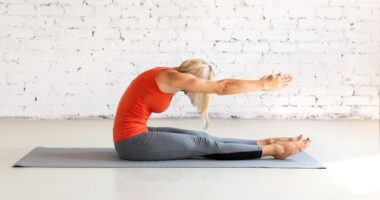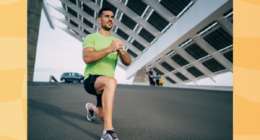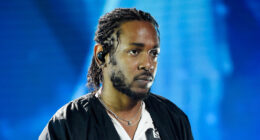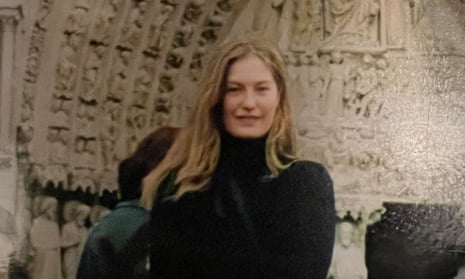
A moment that changed me: after a shattering rape, yoga helped put me back together
Following the attack, I sensed danger everywhere. Yoga taught me to trust again – and I started to rebuild my life
I was living in London in 2001 and had just completed my master’s thesis on feminist performance art. I’d left the printed copy at my new boyfriend’s rented flat and was on my way there to pick it up and turn it in after a doctor’s appointment for a bizarrely late case of chickenpox.
The flat my boyfriend had just started renting with two young women was in west London at the very top of an old building with a spiral staircase and a creaky elevator. As I approached the door with his key in my pocket, a stranger asked me for some water. My hackles rose as he’d appeared seemingly out of nowhere, and I bluffed having lost the key and instead offered him a bottle of water I had in my bag. He seemed satisfied and turned to leave.
I made a move to let myself into the flat as quickly as I could and as the key went in I felt the cold steel of a knife at my throat. Assuming he was going to steal things I did a quick scan of the room as he pushed me inside – stereo, maybe a laptop or two upstairs. Nothing that couldn’t be replaced. But then he pushed me to the ground and started to cover my head, tying some kind of cloth over it and repeating “shut up” as I protested.
Pulling me to my feet with the knife firmly at my throat, he said he wouldn’t hurt me if I did what he said. We began a sinister walk up the stairs and I realised this was not going to be your average robbery. Quiet inner panic set in.
Later, with my clothes in a pile on the floor and my face still covered, I joined the ranks of people who identify as rape survivors. I’d also learned the skill of dissociation – a blessing and a curse – and from that moment on my psyche called on it frequently. I would experience an unpleasant “out of body” sensation, as though watching the world through a long tunnel, disoriented, shut down and distanced from my surroundings and everyone around me.
My trust in people was also broken and my sense of the city as a place of possibility and excitement was replaced by the threat of potential danger everywhere. Footsteps behind me became intolerable. Wardrobes had to be checked every night before sleeping when I was alone in the house. The sight of a knife brought with it a cavalcade of unwanted smells and sensations. Childhood trauma was reawakened and compounded. My body and the world around me were no longer safe and predictable. I’d had a little window into what evil can look like and it changed everything.
READ RELATED: 7 Ways To Prevent Hair Loss While Losing Weight
My journey back to trusting people, trusting myself and trusting life in general was slow and not always steady. “I will love you through this,” my boyfriend told me. Twenty years later, he is now my husband and the father of my three children and it was true, he did and he does.
I also began to practise yoga. I’d heard about how it could help to unite body and mind and how they could separate after sexual violence. I didn’t want to take my chances so I went to the local community centre to try a class. I left that first practice finally feeling at ease in my body, and it was a relief and a joy.
I now live in Victoria, British Columbia, and while my work life began in arts education it gradually shifted to working for many years as the director of programs at Yoga Outreach, a non-profit with a mission to expand access to trauma-informed yoga programmes.
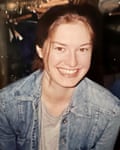
We work with social service facilities, prisons, mental health teams, addiction recovery centres, community centres, and transition houses for women and children who have experienced violence. I also teach classes for people living with complex trauma, and train professionals to use yoga as an empirically validated clinical intervention for complex trauma or chronic, treatment-resistant PTSD.
My work now is fuelled by the hope that anyone who wants to explore the sense of safety and greater ease in their bodies that yoga practice has brought me in my own healing has the opportunity to do so.
Yoga is by no means the only thing I attribute my recovery to. Healing is a complex journey influenced by many things. I have privilege as a white, able-bodied, cis-gendered woman, I have access to therapy and I have loving relationships in my life. Some people do not have these. Yet, yoga gave me the ability to find my feet on the ground when I felt I was floating and untethered. It allowed me to take a breath when I needed to come up for air. It has allowed me to feel myself here in the world when it seemed as though everything I knew to be true was upended. And for that I am extremely grateful.
Source: Health & wellbeing | The Guardian



